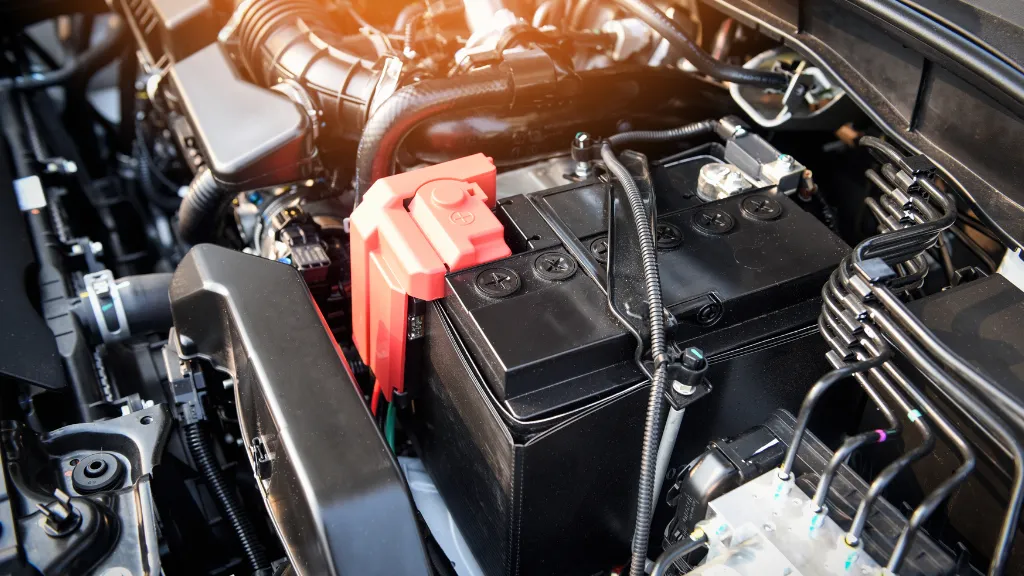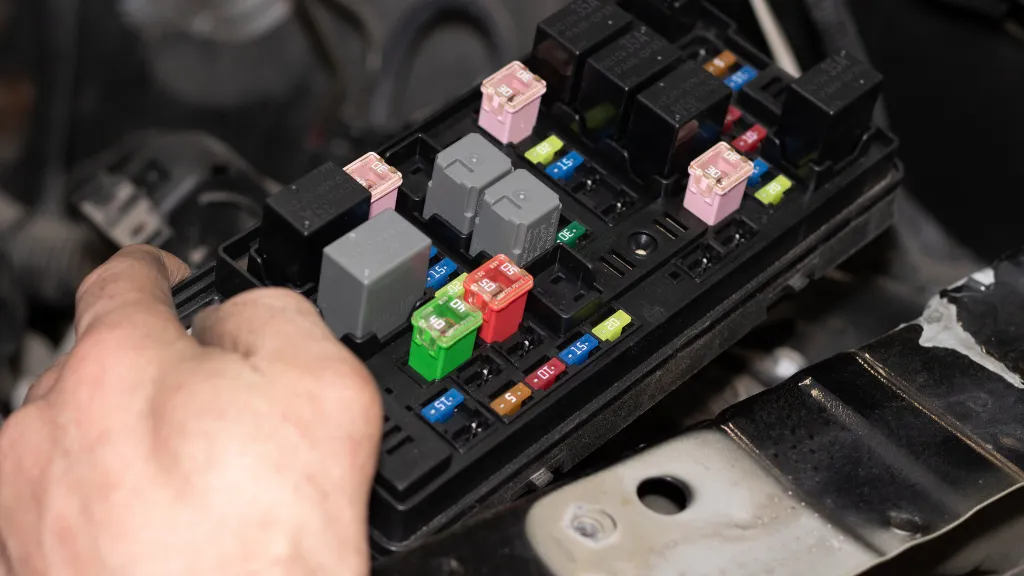What Size Fuse For 100Ah Battery
A fuse acts like a sentinel in electrical systems, guarding against the potential havoc that overcurrent can wreak on your equipment. The importance of selecting the correct fuse size cannot be overstated—it’s a critical decision for the safety and functionality of your setup.
This article zeroes in on the 100Ah battery, a popular choice for its robust capacity and versatility in applications ranging from renewable energy systems to marine and RV power.
Understanding Battery Specifications
A 100Ah (ampere-hour) battery measures a battery’s energy storage capacity, indicating that it can theoretically deliver 100 amperes in one hour. The battery’s voltage, often 12V in many applications, is crucial in determining the appropriate fuse size.
Batteries come in various types, including lead-acid, lithium-ion, and Absorbent Glass Mat (AGM), each with electrical characteristics and requirements.
Fundamentals of Fuse Selection
The fuse’s primary role is to protect electrical circuits by interrupting power flows that exceed safe levels, thus preventing damage and potential fire hazards. When selecting a fuse, one must consider the current rating, which should match or exceed the maximum current expected in the circuit without surpassing the wire’s capacity.
The voltage rating of the fuse must be equal to or greater than the battery voltage, and the interrupting rating must be sufficient to handle potential short-circuit currents. Ambient temperature can also affect fuse performance and must be considered.

Calculating the Correct Fuse Size for a 100Ah Battery
The fuse size for a 100Ah battery is not determined by the battery’s capacity alone. Instead, it’s about the maximum current the system is expected to carry, plus a safety margin.
Continuous and surge currents must be understood—continuous being the regular operating current, and surge being short-term overcurrent events, like motor startups. A common guideline is to choose a 125% to 150% fuse of the continuous current rating.
For instance, if the system’s maximum continuous current is 80A, a 100A to 120A fuse may be appropriate.
Types of Fuses Suitable for a 100Ah Battery
Several types of fuses can be used with a 100Ah battery:
- Cartridge Fuses: Good for high-capacity applications, they are reliable but only sometimes the easiest for quick changes.
- Blade Fuses: Widely used in automotive applications, they are compact and easy to replace.
- ANL Fuses: Ideal for high-current applications, offering durability and ease of inspection.
Each type has its own set of characteristics suited to different applications, and the choice depends on factors like the system’s current demands and the user’s preference for maintenance and replacement ease.
Installation Tips for Fuses in Battery Circuits
Proper placement is crucial—fuses should be installed as close to the battery as possible to protect the entire circuit. It’s also important to ensure that the fuse holder and connections are secure and that the fuse’s amperage is clearly labeled to prevent incorrect replacements.
Avoid common mistakes such as placing the fuse in an inaccessible location or using mismatched fuse types.

Safety Considerations and Compliance
Adhering to safety standards (like UL or CE) is not just a good practice—it’s often a legal requirement. Using the incorrect fuse size can void warranties and, more importantly, create a significant safety hazard.
Regular maintenance, including inspection and testing of fuses, is also essential for ongoing safety.
Case Studies and Real-World Examples
Real-world scenarios where 100Ah batteries are paired with the correct fuse size can provide valuable insights. For example, a solar power setup with a 100Ah battery may use a 125A fuse to accommodate surge currents from the inverter.
Learning from instances of fuse failure can also be instructive, emphasizing the importance of correct selection and installation.
Conclusion
Choosing the right size fuse for a 100Ah battery is a nuanced process that requires understanding the electrical demands of your system. It’s about the battery’s capacity, the maximum expected current, and the system’s conditions.
By following the guidelines and considerations outlined in this article, you can ensure that your electrical system operates safely and efficiently.
Frequently Asked Questions
What happens if I use a fuse that’s too big or too small?
Using a fuse that’s too large may not protect the circuit adequately, while a fuse that’s too small could blow unnecessarily, causing inconvenience and potential downtime.
Can I replace a blown fuse with a higher-rated one temporarily?
This is not recommended as it could lead to circuit damage or fire if the current exceeds safe levels.
How often should I check the fuse in my battery circuit?
Regular inspections should be part of your maintenance routine, especially if the system is subject to fluctuations in current or is in a demanding environment.

Author
Alex Klein is an electrical engineer with more than 15 years of expertise. He is the host of the Electro University YouTube channel, which has thousands of subscribers.
